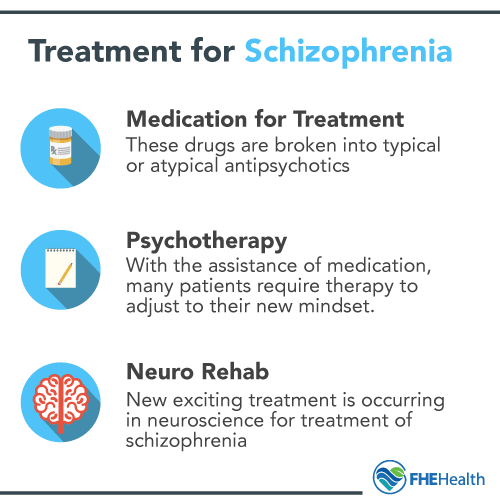
The disorder known as paranoid schizophrenia is characterized mainly by mainly positive symptoms of psychosis, including hallucinations and delusions. These usually debilitating symptoms make it impossible for the sufferer to lead an independent life, blur the distinction between what is real and false, and make it extremely difficult to function in society.
The most common form of paranoid schizophrenia is schizoaffective disorder, which is known to be related to bipolar disorder.
Schizophrenia can also have a very severe form, and in some cases, psychotic depression may occur
There is no single cause of paranoid schizophrenia. While genetic factors may play a major role, it can also be caused by traumatic experiences and trauma in a patient's childhood or adolescence. Although it is not clear at this point whether the disorder is hereditary or caused by traumatic experience, studies have shown that people who are subjected to early trauma have a much higher risk of developing the disorder in the future.
People suffering from psychotic episodes can have delusions, hallucinations, and disorganized thinking patterns. They may also suffer from hearing voices, experiencing panic attacks, and having hallucinations of all sorts. They may be completely unaware of their condition and may even go so far as to believe that they are "cursed"insane." Their friends, family, and employers often dismiss their delusions as being part of their normal mental illness, but some patients may have severe mental health problems.
Because of the highly negative stigma attached to the disorder, many people do not seek treatment, and many more suffer from paranoid schizophrenia for years before seeking medical assistance. In rare cases, some sufferers may be able to cure their hallucinations and delusions with conventional medications, but most are left untreated because of their negative stigma.
Psychotherapy and antipsychotic drugs are often prescribed for patients suffering from paranoid schizophrenia. Antipsychotic drugs are often used to treat psychotic disorders like schizophrenia, and are sometimes used to treat psychosis as well. A wide variety of psychiatric drugs are available to treat psychotic disorders, including antidepressants, anti-seizure medication, mood stabilizers, sedatives, and anti-anxiety medications.

Although antipsychotic medications have been shown to reduce hallucinations, delusions, and disorganized thinking in patients, some patients can still remain severely psychotic even after taking antipsychotic drugs. Patients treated with antipsychotic medications can have hallucinations even if their hallucinations are caused by substance abuse, withdrawal symptoms caused by drug withdrawal, or chemical imbalances in the brain. If antipsychotic medications are combined with antidepressants or other medications such as anti-depressants, it is likely that a combination of both antipsychotic drugs and the antidepressant will bring about severe side effects.
Schizophrenic psychosis can be very dangerous if it is not treated, and patients should always be careful when considering any type of treatment. Many patients develop hallucinations, delusions, and can lead to very destructive lives if left untreated. As with any mental health problem, the earlier that treatment is sought, the better. Schizophrenia can be cured; however, it is important to realize that no one gets better overnight, and that treatments take time.
Treatment for paranoid schizophrenia is generally considered the same as other forms of schizophrenia
Medications, psychotherapy, and group therapy are commonly used to help patients recover and overcome paranoia.
Medication is the common method of treating schizophrenics, but the problem is that they often experience rebound reactions to medication and may become resistant to medication. Some patients may have an increase in symptoms following an acute episode of schizophrenia, and this may indicate that the medication has become ineffective or that they need to be treated with a different type of medication.
With the advent of more advanced psychiatric and pharmacology techniques, the number of treatments available to treat schizophrenia has improved tremendously over the past few decades, resulting in more options than ever before. Psychotherapy is often considered the first line of treatment for paranoid schizophrenia, since it allows patients to talk openly and express their thoughts and fears.
While treatment of paranoid schizophrenia usually involves either medication or psychotherapy, it is also important to realize that it is not a disease, and patients should be open with their doctors and discuss their options. Often times, patients with schizophrenia will have a greater chance of recovery if they share their symptoms with a trusted family member or doctor, since they know that their doctors can help them with treatment options.